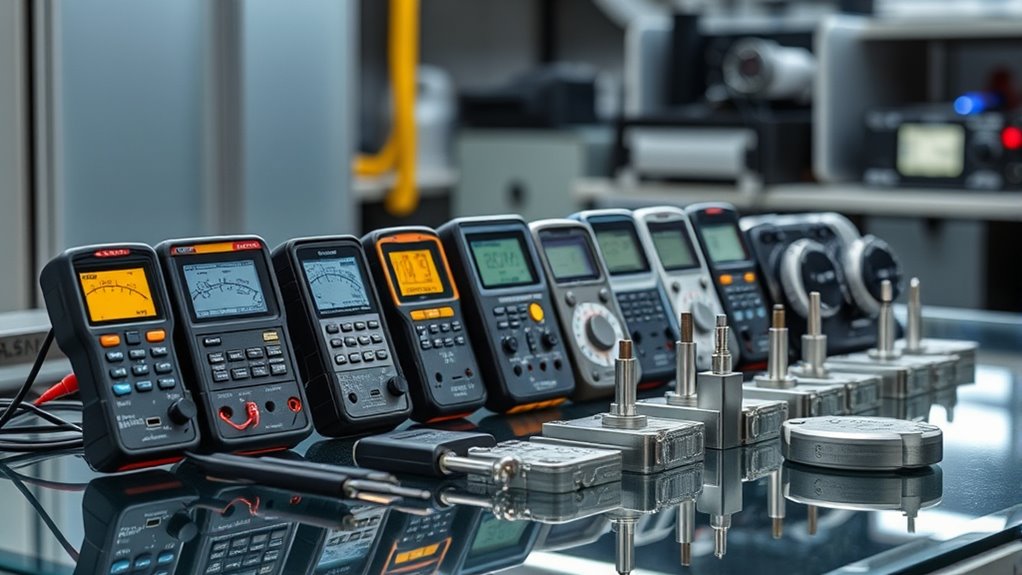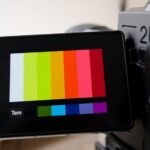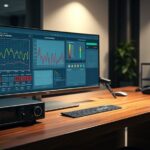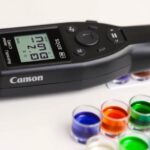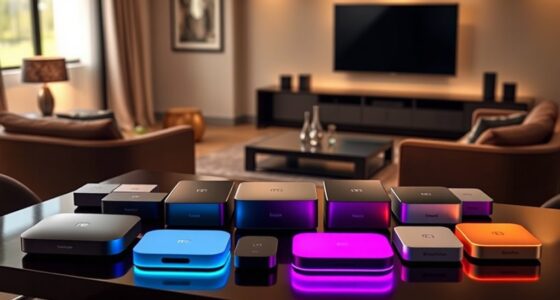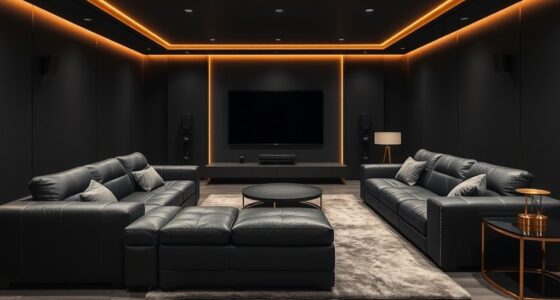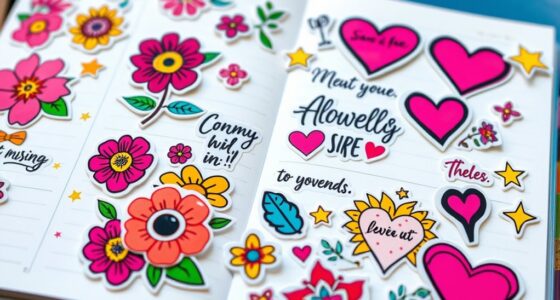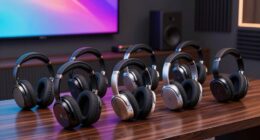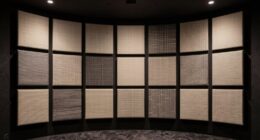If you’re looking for the best advanced calibration tools for precise, reliable measurements, I suggest focusing on high-quality kits like ADAS calibration sets for various vehicle brands, digital and lab scale weights, lens focus rulers, and calibration bars for micrometers. These tools guarantee accuracy across automotive, photography, and laboratory tasks. Keep in mind compatibility, accuracy, and durability. Stick around to discover more details about these top-rated calibration solutions and how they can meet your needs.
Key Takeaways
- The list includes advanced calibration tools for vehicle ADAS systems, radar, sensors, and alignment accessories ensuring high accuracy.
- Precision calibration weights and bar sets meet international standards, suitable for laboratory, industrial, and jewelry scales.
- Specialized camera focus rulers assist in autofocus and lens calibration for professional and amateur photography.
- Diagnostic devices support dynamic vehicle system calibration, enhancing safety and performance across multiple vehicle brands.
- The tools combine durability, ease of use, and compatibility with modern measurement and calibration requirements for reliable results.

ANGSO-AUTO ADAS Calibration Tool Kit Compatible with Honda Toyota Kia Ford ADAS Radar Aiming Calibration Tool,Post with 0-30 Centimeter Scale,Corner Reflector Target with Billet Aluminum Stand
Universal Compatibility: Fit for Honda, Toyota, Kia, and Ford vehicles,Whether you're a professional mechanic or a DIY enthusiast,...
As an affiliate, we earn on qualifying purchases.
ADAS Calibration Tool Kit for Honda, Toyota, Kia, Ford
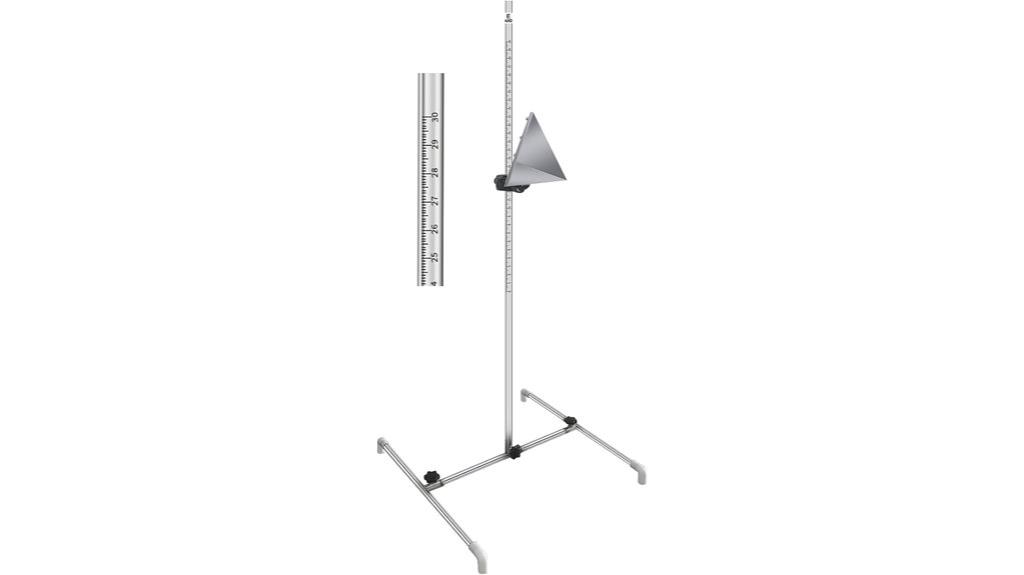
If you’re working on Honda, Toyota, Kia, or Ford vehicles, the ANGSO-AUTO ADAS Calibration Tool Kit is an excellent choice because it’s designed specifically for these brands and easy enough for both professionals and DIY enthusiasts to use. The kit includes a durable billet aluminum corner reflector and a sturdy stainless steel stand with non-slip feet, ensuring stability on uneven surfaces. Its adjustable post allows quick, precise height adjustments, reducing calibration time. No complex tools or skills are needed—assembly is straightforward. With its reliable accuracy and user-friendly design, this kit makes ADAS calibration efficient and accessible for anyone working on these popular vehicle brands.
Best For: DIY enthusiasts and professional mechanics working on Honda, Toyota, Kia, or Ford vehicles who need a reliable, easy-to-use ADAS calibration solution.
Pros:
- Durable construction with billet aluminum reflector and stainless steel stand ensures long-term reliability.
- Adjustable post with a 0-30cm scale allows quick, precise height adjustments, saving calibration time.
- Simple assembly requiring no complex tools makes it accessible for users with minimal DIY experience.
Cons:
- Compatibility confirmation needed for specific vehicle models before use.
- Limited to Honda, Toyota, Kia, and Ford vehicles, not suitable for other brands.
- Price matching is not guaranteed, which may limit cost-saving opportunities.
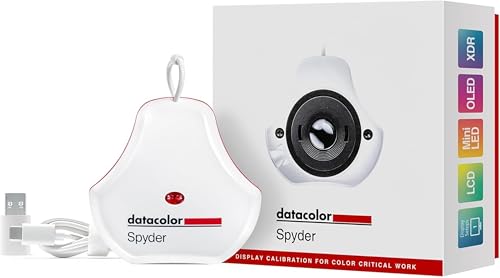
datacolor Spyder - Monitor Calibrator for Graphic Designers, Photographers, and Content Creators, Shows You True Colors, Works on OLED Monitors & LED Screens, Easy-to-Use Color Calibration Tool
Color “Surprises” Are a Thing of the Past: Datacolor’s exclusive DevicePreview TM Beta feature simulates what your photos...
As an affiliate, we earn on qualifying purchases.
Datacolor Spyder Monitor Calibration Tool

The Datacolor Spyder Monitor Calibration Tool stands out as an excellent choice for photographers, designers, and digital content creators who need quick, reliable, and accurate color calibration. It supports a wide range of displays, including OLED, mini-LED, and Apple Liquid Retina XDR, and calibrates in about 90 seconds. The device features an intuitive interface with pre-set options for novices and customizable settings for pros. Its software includes DevicePreview Beta, which simulates how images appear across devices. Additionally, it measures ambient light to automatically or manually adjust brightness and contrast. Overall, it’s a user-friendly, efficient tool that guarantees consistent color accuracy across multiple screens.
Best For: photographers, designers, and digital content creators seeking quick, accurate, and user-friendly monitor calibration.
Pros:
- Fast calibration process taking approximately 90 seconds, saving time
- Supports a wide range of displays including OLED, mini-LED, and Apple Liquid Retina XDR
- Intuitive interface with pre-set options suitable for beginners and customizable settings for professionals
Cons:
- Compatibility issues with certain monitors like OLED and wide-gamut LCDs, leading to crashes or incorrect profiles
- Potential hardware connection problems, especially with USB-C ports, and software stability concerns
- Some users experience difficulties with software updates, registration, and customer support responsiveness

Outer Edge 5.7in Radar Aiming Corner Reflector Target ADAS Calibration Tool Include Stand and Mini Digital Protractor- Compatible with Honda Toyota Mazda Kia Ford GM Hyundai Regular Size Vehicle Car
1.【Efficient Calibration】: The Radar Aiming Corner Reflector Target ADAS Calibration Tool ensures accurate calibration for Honda, Toyota, Mazda,...
As an affiliate, we earn on qualifying purchases.
ADAS Radar Target Calibration Tool Set for Honda, Toyota, Mazda, Kia, Ford, GM
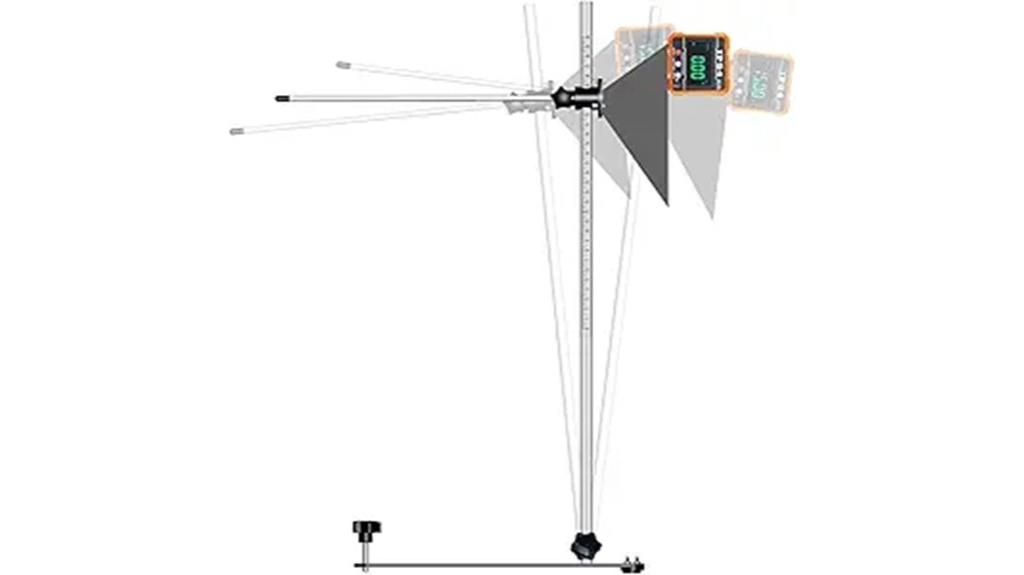
For professionals seeking precise ADAS calibration, the HUPILAN ADAS Radar Target Calibration Tool Set stands out as an essential choice, especially for those working with Honda, Toyota, Mazda, Kia, Ford, and GM vehicles. This set includes a sturdy stand with a 0-30cm scale, making calibration quick and straightforward. Simply position the corner reflector, adjust the height, and follow the instructions for accurate results. Made from heavy-duty steel, it ensures durability and stability during use. Customers appreciate its ease of use and cost-effectiveness, though some note minor stability issues. Overall, it provides a reliable, efficient solution for maintaining ideal ADAS system performance.
Best For: Professional technicians and automotive shops working on Honda, Toyota, Mazda, Kia, Ford, and GM vehicles requiring precise ADAS radar calibration.
Pros:
- Easy to set up with a clear 0-30cm scale for quick calibration
- Constructed from heavy-duty steel for enhanced durability and stability
- Cost-effective solution that ensures accurate ADAS system calibration
Cons:
- Some users report minor stability issues during use
- Compatibility limited to specific vehicle brands listed
- Slightly higher weight may require careful handling during transportation

ADAS Calibration Tool Radar Aiming Corner Reflector Target Kit with Plumb Bobs,Stand with 0-30 cm Scale,Plumbob with String,Car Calibration Tool Compatible with Kia Honda Toyota Mazda Ford GM Hyundai
【Precision ADAS Calibration Setup】Plumb bob transfers exact vehicle center line to floor markings; Corner Reflector and Stand enhance...
As an affiliate, we earn on qualifying purchases.
ADAS Calibration Tool Radar Aiming Target Kit with Plumb Bobs
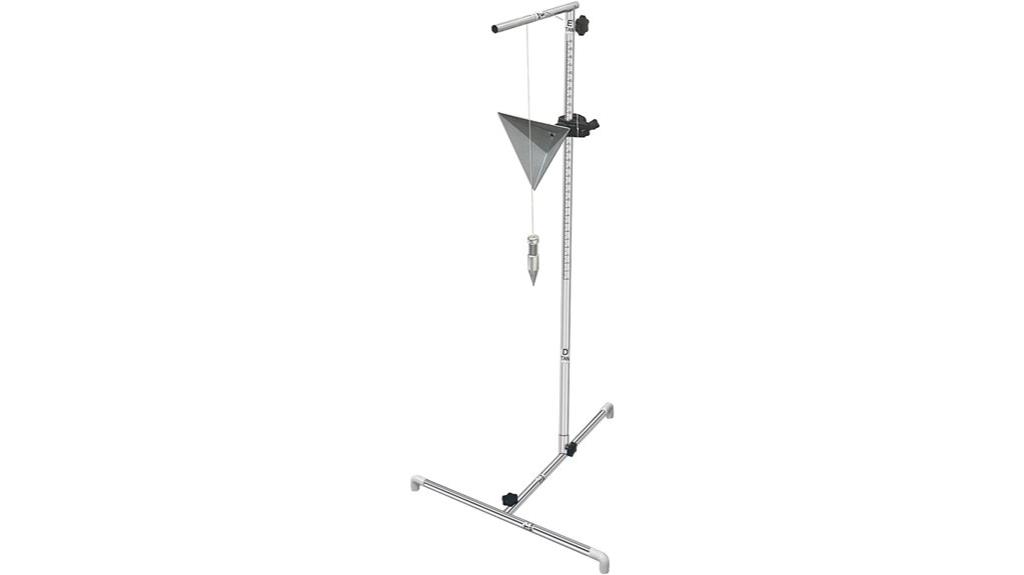
Automotive professionals seeking reliable ADAS calibration tools will appreciate the Radar Aiming Target Kit with Plumb Bobs for its precise alignment features. This kit guarantees accurate calibration by transferring the vehicle’s centerline to floor markings using a durable plumb bob. It includes a corner reflector and stand for improved radar system alignment, along with a graduated measurement scale for precise adjustments. Its dual-purpose design simplifies workflows by combining vertical alignment and calibration measurements in one tool. Made from billet aluminum and reinforced steel, the kit offers durability for daily use across various vehicle makes like Kia, Honda, Toyota, and more, streamlining calibration with speed and accuracy.
Best For: Automotive professionals and calibration technicians seeking a durable, precise, and efficient tool for ADAS radar and sensor alignment across various vehicle makes.
Pros:
- Ensures highly accurate ADAS calibration with integrated plumb bob and graduated stand for precise measurements.
- Combines multiple calibration functions in a single, durable billet aluminum and steel construction, saving time and reducing tool clutter.
- Compatible with a wide range of vehicle brands including Kia, Honda, Toyota, Mazda, Ford, GM, and Hyundai, making it versatile for professional use.
Cons:
- May require some familiarity with calibration procedures to maximize effectiveness.
- The initial investment might be higher compared to simpler or generic calibration tools.
- Bulkier design could be less convenient for mobile or compact workshop setups.
Lens Focus Calibration Tool Alignment Ruler Folding Card(Pack of 2)

If you’re looking to fine-tune your camera’s autofocus with a budget-friendly yet effective tool, the Lens Focus Calibration Tool Alignment Ruler Folding Card (Pack of 2) is an excellent choice. This compact, foldable ruler helps determine if your lenses autofocus accurately, especially when shooting with shallow depth of field. You set it up on a tripod, focus on the QR code, and analyze the shot to see if focus aligns with zero. It’s compatible with Nikon, Canon, and Sony cameras that support micro-adjustments. While made of cardboard and requiring proper setup, it provides reliable, cost-effective results, making calibration accessible without expensive equipment.
Best For: photographers seeking an affordable, effective tool to calibrate autofocus accuracy on Nikon, Canon, and Sony cameras with micro-adjustment capabilities.
Pros:
- Cost-effective alternative to premium calibration tools, saving money while providing reliable results
- Compact and foldable design for easy transport and storage
- Suitable for verifying focus accuracy at wide apertures, especially with shallow depth of field
Cons:
- Made of cardboard, which may flex or bend, affecting setup precision
- Requires careful setup and understanding of camera autofocus adjustments; not a plug-and-play solution
- Limited to mid-range focal lengths (35-100mm) and less effective for macro or telephoto lenses at typical distances
ADAS Radar Aiming Calibration Tool with Digital Level and Magnetic Base
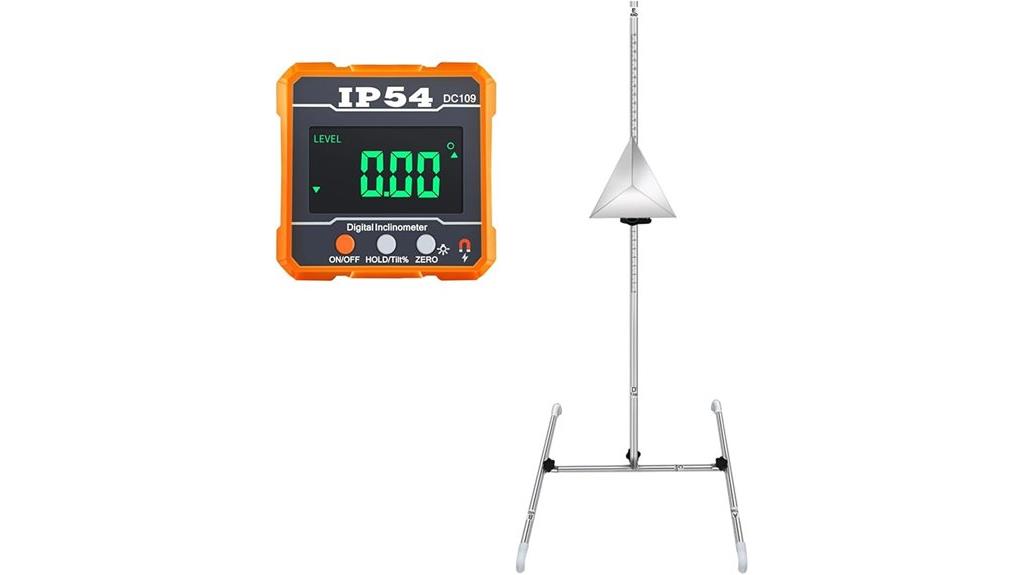
The ADAS Radar Aiming Calibration Tool with Digital Level and Magnetic Base stands out as an essential device for professionals and DIY enthusiasts seeking quick, accurate calibration of radar systems. Its adjustable height bracket with a clear scale simplifies precise setup, saving time and improving accuracy. Compatible with Honda, Toyota, Kia, and Ford vehicles, it offers stability through a magnetic base and non-slip feet. The digital angle gauge provides high-precision measurements up to ±0.1°, ensuring exact alignment of suspension, engine, and body components. This tool streamlines routine maintenance and complex repairs, enhancing safety and performance with reliable, easy-to-use calibration capabilities.
Best For: professional mechanics and DIY enthusiasts seeking quick, precise calibration of ADAS radar systems on Honda, Toyota, Kia, and Ford vehicles.
Pros:
- Easy to adjust height with a clear, precise scale for quick setup.
- High-accuracy digital angle gauge with ±0.1° precision for reliable alignment.
- Stable magnetic base and non-slip feet ensure secure positioning during calibration.
Cons:
- Batteries for the digital angle finder are not included, requiring users to purchase 2 AAA batteries separately.
- Compatibility limited to Honda, Toyota, Kia, and Ford vehicles, not universal for all car brands.
- The product’s first availability date is December 5, 2024, which may affect immediate availability or access in some regions.
ADAS Calibration for Planar Radar Sensor Positioning Tool
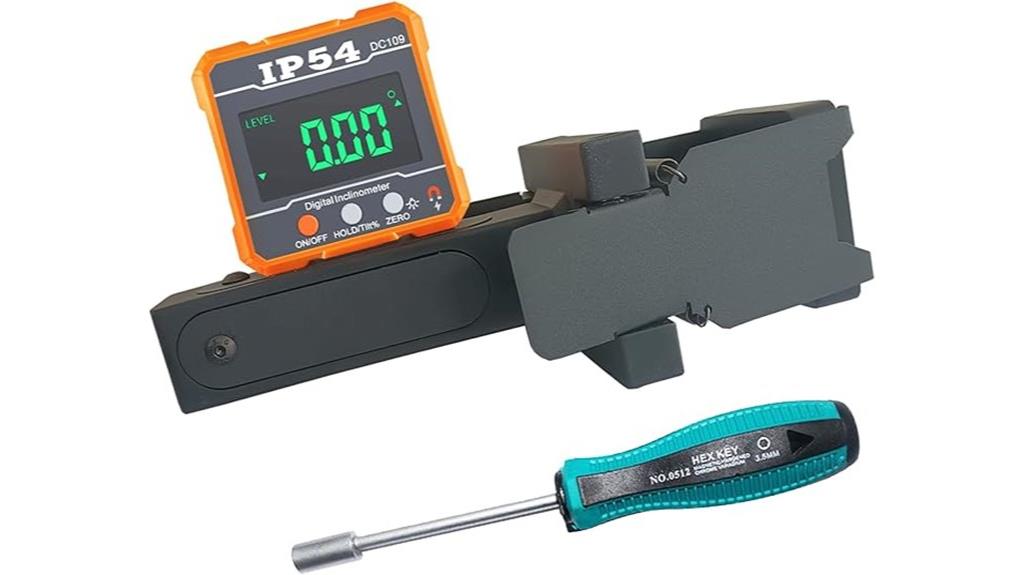
For technicians seeking precise and reliable calibration, the ADAS Calibration for Planar Radar Sensor Positioning Tool stands out as an essential device. This professional-grade equipment guarantees accurate radar sensor placement, supporting ADAS and ACC calibration. Its user-friendly interface simplifies complex adjustments, saving time and reducing errors. The tool’s sturdy, heavy-duty construction assures durability through frequent use, while its compact size makes it easy to handle. With precise measurements and reliable performance, it helps optimize system functionality and safety. Supported across various vehicle models, it’s a versatile addition to any calibration setup, delivering consistent, long-lasting results.
Best For: automotive technicians and DIY enthusiasts seeking precise, reliable calibration of radar sensors for ADAS and ACC systems.
Pros:
- Supports accurate ADAS and ACC calibration for various vehicle models.
- Durable, heavy-duty construction ensures long-lasting performance in busy workshop environments.
- User-friendly interface simplifies complex calibration procedures, saving time.
Cons:
- Moderate market popularity may indicate limited availability or awareness.
- Weighs 1.05 pounds, which might be slightly heavy for extended handheld use.
- Being a specialized calibration tool, it may require some technical knowledge for optimal use.
Goetland F1 Calibration Weight Kit Set (25 pcs, 1mg-1kg, Stainless Steel)

High-precision calibration becomes straightforward with the Goetland F1 Calibration Weight Kit Set, especially suited for professionals and serious hobbyists requiring reliable accuracy. This set includes 25 stainless steel weights from 1 milligram to 1 kilogram, housed in a sturdy aluminum case with foam padding and a plastic box for small weights. Certified annually by top East Asian institutes, these weights meet F1 accuracy standards and approach E1 grade. Made from SUS304 stainless steel with a mirror finish, they offer durability and minimal magnetic attraction. Ideal for calibrating balances and electronic scales, the set provides microgram-level precision, making it an excellent value for ensuring measurement reliability.
Best For: professionals and serious hobbyists who need reliable, high-precision calibration weights for balances, electronic scales, and jewelry scales within the 1mg to 1kg range.
Pros:
- High-precision weights meeting F1 standards with near E1 grade accuracy.
- Durable SUS304 stainless steel construction with a mirror finish for longevity.
- Comes with a comprehensive set including case, foam padding, tweezers, and cleaning cloth for ease of use.
Cons:
- Certificates are only available in PDF format and in Chinese, limiting traceability for some users.
- Metal tweezers may risk damaging small or delicate weights if not handled carefully.
- Larger weights (e.g., 50g) show slightly higher measurement errors, which may be unsuitable for ultra-high precision requirements.
ADAS Calibration Tool for Eyeball Unit and Auto Leveling Accessory
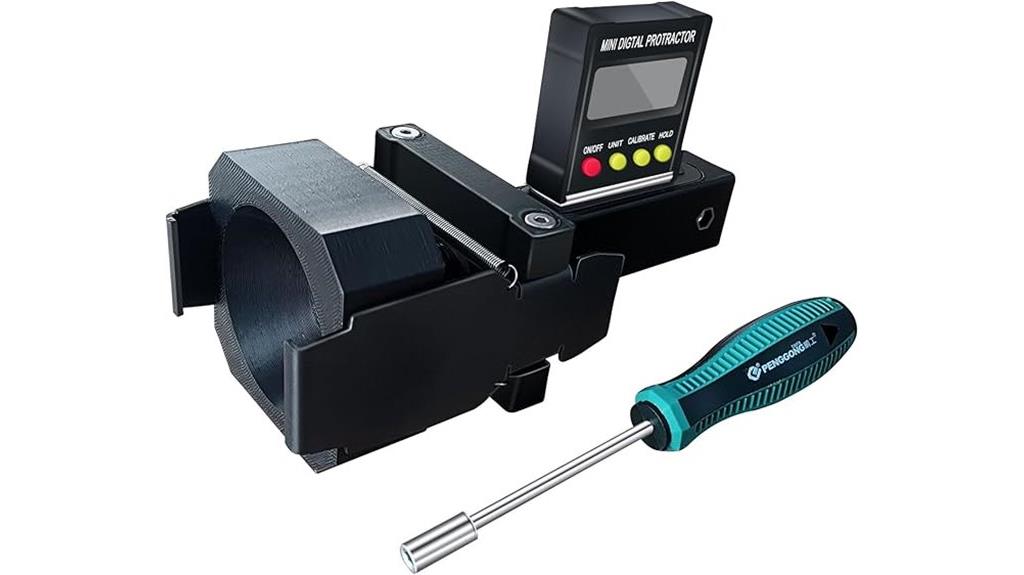
If you’re working with Eye Ball Units on various vehicle brands, the ADAS Calibration Dynamic ACC Positioning Tool with the Angso-Auto Leveling Accessory is an excellent choice. It assures precise calibration of Adaptive Cruise Control systems across brands like Benz, Land Rover, Tesla, and more. The tool doubles as a diagnostic scanner, supporting real-time system adjustments. Its magnetic design allows easy attachment to the Eye Ball Unit, simplifying calibration. Powered by 2 AAA batteries, it offers a user-friendly experience for dynamic angle and leveling adjustments. This accessory guarantees accurate system performance, enhancing vehicle safety and driver comfort through reliable, independent calibration.
Best For: automotive technicians and service centers working on multiple vehicle brands requiring precise ADAS calibration of Eye Ball Units.
Pros:
- Supports dynamic ACC calibration for real-time system adjustments.
- Compatible with a wide range of vehicle brands including Benz, Land Rover, Tesla, and more.
- Easy to use with magnetic attachment and powered by common AAA batteries for convenience.
Cons:
- Not suitable for static calibration procedures.
- Only compatible with Eye Ball Units, limiting its use with planar units.
- Requires batteries (not included), adding to accessory management.
Professional Sound Level Calibrator with Three Calibration Levels (94dB, 104dB, 114dB)

The Professional Sound Level Calibrator with three calibration levels—94dB, 104dB, and 114dB—is an essential tool for anyone needing accurate SPL meter calibration. Its 1KHz calibration frequency ensures precise noise measurement, while the compact, lightweight design makes it easy to use anywhere. With a benchtop form factor and a 13.2mm cavity, it provides stable positioning for microphone calibration. The device is battery-operated, featuring LED indicators for warm-up completion and low battery alerts. Simple to operate, it’s perfect for professional environments, offering reliable, consistent calibration levels for maintaining measurement accuracy in various noise monitoring applications.
Best For: professionals and technicians who require accurate and reliable calibration of SPL meters in various noise measurement environments.
Pros:
- Provides precise calibration at three different levels (94dB, 104dB, 114dB) for versatile use.
- Compact and lightweight design enhances portability and ease of use in the field.
- Easy to operate with clear LED indicators and stable benchtop positioning for consistent results.
Cons:
- Requires careful microphone alignment to avoid damage during calibration.
- Battery life may be limited, necessitating regular recharging or replacement.
- Limited to 1KHz calibration frequency, which may not suit all specialized calibration needs.
ADAS Calibration Dynamic Positioning Tool for Car Use
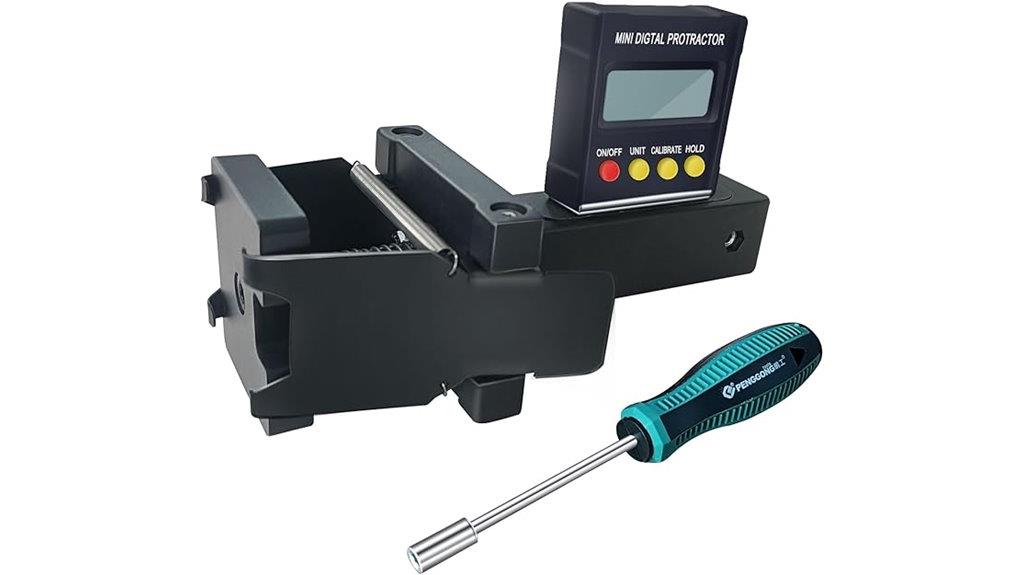
For professionals and serious enthusiasts seeking accurate ADAS calibration, the ADAS Calibration Dynamic Positioning Tool for Car Use stands out due to its magnetic design that easily attaches to planar radar units. This feature guarantees quick, secure setup, streamlining the calibration process. Compatible with brands like Benz, Land Rover, Tesla, Ford, Chevrolet, and Jeep, it supports dynamic calibration of ACC systems, enhancing safety and performance. Powered by two AAA batteries, it functions as both a calibration and diagnostic tool. Its angle leveling capability ensures precise alignment, making it ideal for professional use or independent maintenance. This tool delivers reliable, efficient calibration for improved vehicle safety.
Best For: automotive professionals and serious enthusiasts seeking precise, reliable ADAS calibration for a variety of vehicle brands.
Pros:
- Magnetic design allows quick and secure attachment to planar radar units, simplifying setup.
- Supports dynamic calibration of ACC systems, enhancing vehicle safety and performance.
- Compact, powered by standard AAA batteries, and functions as both a calibration and diagnostic tool.
Cons:
- Compatible only with planar sensor units, not suitable for eye ball units.
- Requires purchase of batteries separately, as they are not included.
- Designed specifically for dynamic calibration; may not be suitable for static calibration needs.
UCEC Calibration Weights for Digital Scale, 10mg – 100g

Designed for users needing reliable calibration of digital scales, the UCEC Calibration Weights set offers an all-encompassing range from 10mg to 100g. It includes 17 precision weights, from tiny 10mg pieces to 100g, housed in a secure case with dedicated slots for organization. Made of solid, corrosion-resistant metal, these weights are durable and easy to handle, with small shapes and tweezers to prevent loss. While suitable for calibrating consumer scales and verifying measurement sensitivity, they may not provide lab-grade accuracy at the milligram level. Overall, this set is ideal for ensuring your digital scales are precise and reliable for everyday use.
Best For: individuals and professionals seeking reliable calibration weights for digital scales, jewelry, and precision balances in non-laboratory settings.
Pros:
- Wide range of weights from 10mg to 100g, suitable for various calibration needs
- Made of durable, corrosion-resistant metal with a secure storage case for organization
- Easy to handle with included tweezers, reducing the risk of loss during use
Cons:
- Not suitable for lab-grade, milligram-level precision applications
- Small weights may have accuracy variations of ±5mg, limiting high-precision use
- Plastic storage box and tweezers may be of lower quality and pose safety concerns for some users
16PCS Calibration Weight Set (2000g, M2 High Precision)
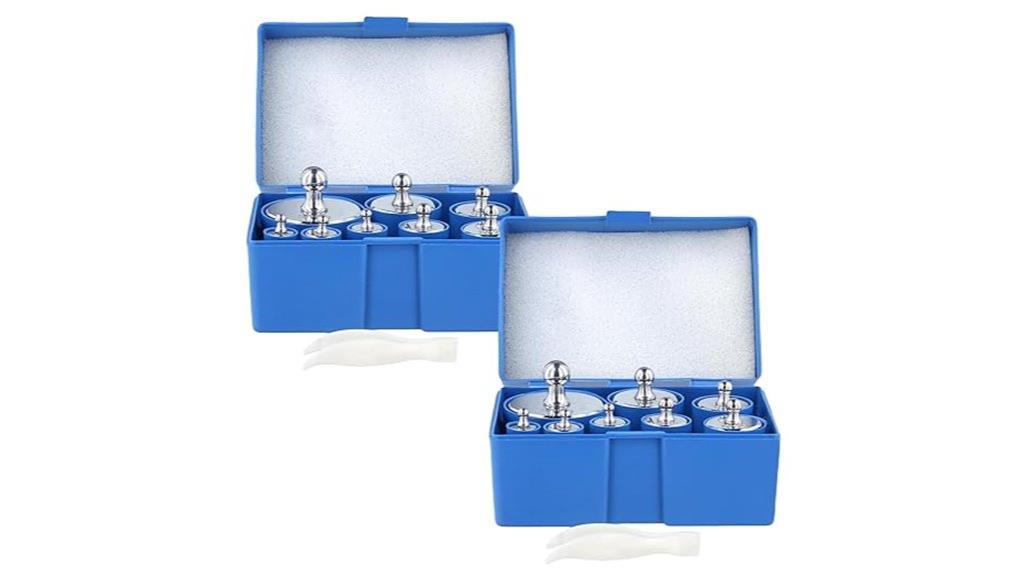
If you need high-precision calibration weights for sensitive balancing tasks, the PCS Calibration Weight Set (2000g, M2 High Precision) stands out as an excellent choice. Made of durable, chrome-plated steel, it offers reliable accuracy and longevity. The set includes weights ranging from 10g to 500g, totaling 2000g, perfect for calibrating scales, balances, and weighing devices in labs or commercial settings. It comes with a sturdy storage case and tweezers, ensuring organized and safe handling. I find this set ideal for maintaining measurement integrity, especially when precision and durability are essential for your calibration needs.
Best For: professionals and technicians who require high-precision calibration weights for accurate measurement and calibration of scales, balances, and weighing devices in laboratory, commercial, or jewelry settings.
Pros:
- Made of durable, chrome-plated steel ensuring longevity and resistance to corrosion
- Includes a comprehensive range of weights from 10g to 500g, totaling 2000g for versatile calibration needs
- Comes with a sturdy storage case and tweezers for organized and safe handling
Cons:
- May be heavier and bulkier to transport compared to smaller calibration weights
- Requires careful handling to maintain calibration accuracy over time
- Not suitable for calibration tasks requiring weights over 2000g or different measurement units
25mm Calibration Bar for Micrometer and Caliper Calibration
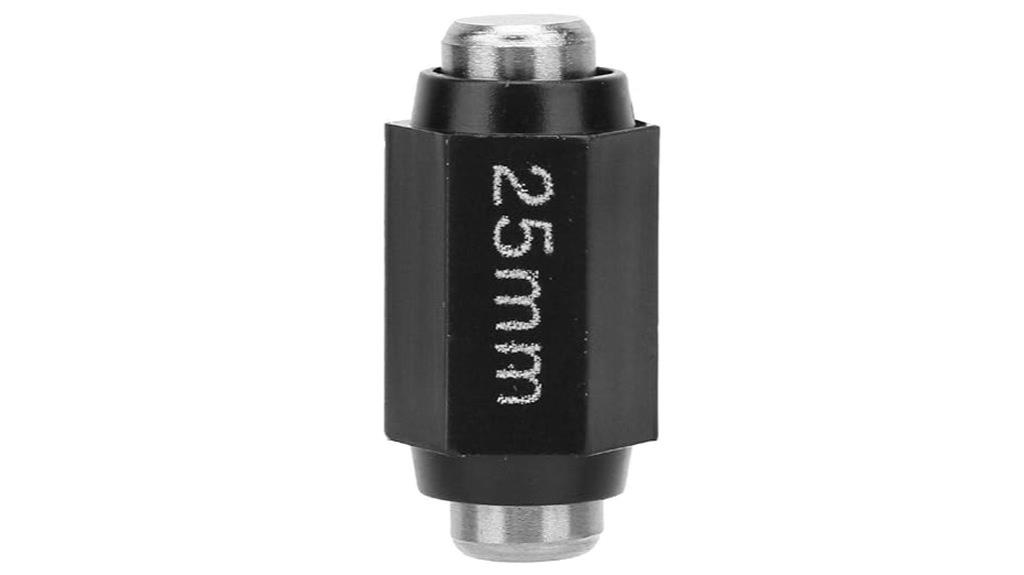
The 25mm calibration bar stands out as an essential tool for professionals seeking high accuracy in micrometer and caliper calibration. Made from premium stainless steel, it offers excellent resistance to deformation and long-lasting durability, ensuring consistent performance over time. This new, high-quality calibration bar is available in various specifications, accommodating different measurement ranges. Its lightweight and compact design make it easy to handle, transport, and use across different settings. Primarily used for calibrating micrometers, it guarantees measurement precision and consistency, making it an indispensable tool for maintaining calibration accuracy and reliable measurements in professional environments.
Best For: professionals and technicians who require precise calibration of micrometers and calipers to ensure measurement accuracy and consistency.
Pros:
- Made of premium stainless steel for durability and resistance to deformation
- Available in various specifications to suit different measurement ranges
- Lightweight and compact, easy to handle and transport
Cons:
- May require careful handling to maintain calibration accuracy
- Limited to calibration of micrometers and calipers, not suitable for other measuring tools
- Availability might be limited to specialized suppliers
Bekith 8PCS Calibration Weights for Digital and Lab Scales

For professionals and hobbyists who need precise calibration, the Bekith 8PCS Calibration Weights stand out as a reliable choice. This set includes eight solid, coated carbon steel weights totaling 1000g, with precise measurements from 10g to 500g. Designed for digital and lab scales, they guarantee accuracy within ±0.003g. The weights come with a sturdy plastic case and tweezers, though handling heavier weights requires extra care. Despite minor packaging issues, users report excellent reliability and performance. Perfect for calibrating laboratory, educational, or home scales, this set offers excellent value and consistent results for maintaining measurement integrity.
Best For: professionals, hobbyists, and educational users who require precise and reliable calibration weights for digital and lab scales.
Pros:
- Accurate and consistent measurements within ±0.003g, verified by high-precision testing.
- Made of durable, anti-oxidation coated carbon steel with a chrome finish for long-term use.
- Comes with a convenient plastic storage case and tweezers, offering good value for money.
Cons:
- Packaging issues such as cracked boxes or broken cases can lead to weights scattering or falling out.
- Handling heavier weights (200g and 500g) may require additional tools like cotton gloves for safe transfer.
- Initial unpleasant smell from the weights that dissipates after cleaning.
Factors to Consider When Choosing Advanced Calibration Tools
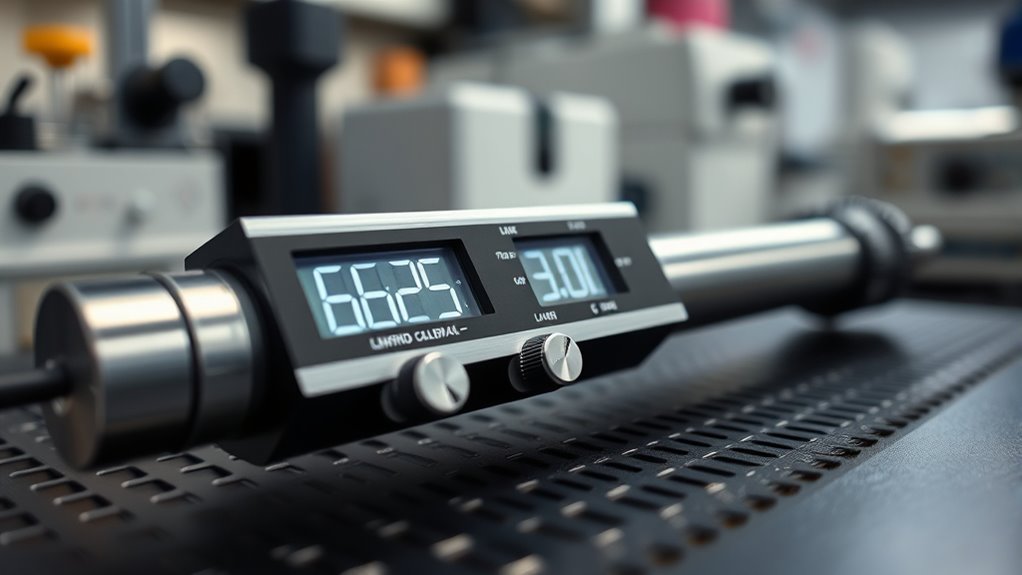
When selecting advanced calibration tools, I focus on compatibility with my equipment and ensuring they meet calibration accuracy standards. Ease of use, durability, and the measurement range are also key factors that influence my choice. Considering these points helps me find tools that are reliable, efficient, and suited to my specific calibration needs.
Compatibility With Equipment
Choosing an advanced calibration tool requires careful attention to its compatibility with your equipment. I always verify that the tool matches the specific model and type I’m working with, whether it’s a radar sensor, eyeball unit, or digital scale. For automotive applications, I check that it’s compatible with the vehicle brand, like Honda or Ford, to ensure proper calibration. Supporting the necessary procedures—static, dynamic, or radar aiming—is essential. I also review the device’s technical specs, such as measurement ranges and interface options like USB or Bluetooth, to confirm they align with my hardware. Additionally, I consider manufacturer guidance and user feedback to ensure seamless integration into my existing workflows, avoiding compatibility issues that could compromise calibration reliability.
Calibration Accuracy Standards
Calibration accuracy standards are vital because they guarantee the acceptable error margins that ensure reliable measurements. When selecting advanced calibration tools, I focus on their compliance with these standards, which specify limits like ±0.003g for weights or ±0.1° for angles. International standards such as OIML, ANSI, and ISO define these performance criteria, guaranteeing consistency across industries. Traceability is another key factor; calibration tools must provide documented proof that measurements align with recognized standards. This verification typically involves using certified reference standards to check that devices operate within specified accuracy limits. Regular calibration and adherence to these standards are indispensable for maintaining measurement reliability, ensuring safety, and achieving compliance. These factors form the foundation for choosing the most precise and trustworthy calibration tools.
Ease of Use
Selecting advanced calibration tools requires considering how user-friendly they are to operate. I look for intuitive interfaces, clear instructions, and minimal setup, ensuring the tool accommodates various skill levels. Automated or semi-automated processes are a big plus, reducing user errors and speeding up calibration. I appreciate tools with easy-to-read measurement scales, whether digital displays or graduated lines, which help me make precise adjustments effortlessly. Compatibility with common devices and straightforward setup procedures mean I spend less time troubleshooting. Features like visual indicators, backlit screens, or step-by-step guidance markedly enhance the user experience. Overall, a calibration tool that’s simple to use saves me time, minimizes mistakes, and allows me to focus on accuracy without frustration.
Durability and Material
Durability is essential when it comes to advanced calibration tools, especially since they often endure demanding environments and frequent use. I look for tools made from high-quality materials like stainless steel, billet aluminum, or reinforced steel, which resist wear and environmental stress. Corrosion-resistant options such as chrome-plated steel or coated metals help maintain accuracy over time. Heavy-duty construction minimizes dents, deformation, or scratches, ensuring consistent performance during rigorous tasks. I also prefer materials with minimal magnetic attraction, like SUS304 stainless steel, to prevent interference with sensitive measurements. The robustness of the material directly affects the tool’s lifespan and reliability, allowing me to trust its precision in demanding settings. Choosing durable, high-quality materials guarantees long-lasting performance and accurate calibration results.
Measurement Range Coverage
Choosing a calibration tool that effectively covers your measurement needs starts with ensuring it spans the entire range required for your applications. I look for tools that handle everything from tiny weights like 1 mg to larger ones up to 2,000 g, matching industry standards and accuracy requirements. It’s essential that the device supports incremental adjustments across its full spectrum, preventing gaps or overlaps that could compromise calibration quality. I also check if it offers multiple measurement points within its range, which boosts precision and reliability. Additionally, I consider whether the tool’s measurement range accommodates future calibration needs, so I won’t need to buy new equipment later. Ensuring exhaustive coverage saves time, reduces costs, and guarantees consistent, reliable measurements over time.
Portability and Storage
When evaluating advanced calibration tools, portability and storage are crucial factors that can make or break their practicality in real-world settings. Lightweight tools, often under 2 pounds, are easier to carry between sites, saving time and effort. Compact forms like foldable calibration cards fit comfortably in toolkits or camera bags, ensuring they don’t take up much space. Dedicated storage cases made of durable materials, such as aluminum or hard plastic, protect delicate weights and accessories during transit. Magnetic bases and adjustable stands enhance stability and ease setup in various environments, maintaining calibration accuracy without cumbersome equipment. Proper storage solutions with foam padding or compartments help prevent loss, damage, or deterioration over time, ensuring your tools stay reliable and ready when needed.
Software Integration
Integrating calibration tools with your existing software systems can considerably streamline your workflow and improve accuracy. Compatibility is key—verify the tools support your current operating systems like Windows, macOS, or Linux, and align with calibration software standards. This makes data transfer seamless and analysis more efficient. Look for features such as real-time monitoring, automatic calibration updates, and extensive reporting, which save time and reduce errors. Data security is equally important; proper user authentication and encryption protect sensitive calibration results and device settings. Additionally, choose tools that offer regular software updates and reliable customer support. These factors help maintain smooth integration, quickly resolve compatibility issues, and ensure your calibration process remains reliable and precise over time.
Support and Certification
Ensuring your calibration tools have proper support and certification is essential for maintaining accuracy and compliance. Look for tools with recognized certification standards like NIST, ISO, or traceability certificates, which guarantee reliability. Confirm that the support team provides technical assistance, troubleshooting, and regular updates to keep your calibration precise over time. It’s also important that the product includes documented calibration procedures and clear user guidance to guarantee proper usage. Certification validation from accredited laboratories or testing agencies further verifies that the tool meets industry standards. Finally, check if warranty and after-sales support are available; these protect your investment and address potential issues promptly. Together, these factors help ensure your calibration process stays accurate, reliable, and compliant with industry requirements.
Frequently Asked Questions
How Do I Select the Right Calibration Tool for My Specific Vehicle Model?
To select the right calibration tool for your vehicle, I recommend checking the manufacturer’s specifications to guarantee compatibility. Consider the type of calibration needed, whether it’s for sensors, engine control units, or other systems. I always look for tools with proven accuracy, user-friendly interfaces, and good customer support. Research reviews and ask experts if needed—this helps me avoid costly errors and guarantees reliable, precise results tailored to my vehicle model.
What Are the Maintenance Requirements for Advanced Calibration Tools?
Did you know that regular maintenance can extend the lifespan of calibration tools by up to 30%? I recommend cleaning your tools after each use with manufacturer-approved solutions, checking for calibration drift regularly, and storing them in a controlled environment. Additionally, schedule annual professional calibration to guarantee accuracy. Staying diligent with these steps keeps your tools reliable and precise, saving you time and money in the long run.
Can Calibration Tools Be Used for Both Professional and DIY Applications?
Yes, calibration tools can be used for both professional and DIY applications. I find that versatile calibration tools are designed to cater to a wide range of users, offering precision and reliability regardless of experience level. Whether you’re a professional needing high accuracy or a DIY enthusiast working on home projects, these tools help guarantee your measurements are precise. Just make sure to select the right calibration tool for your specific needs.
How Do Environmental Conditions Affect Calibration Accuracy?
Environmental conditions substantially impact calibration accuracy. I’ve found that temperature fluctuations can cause materials to expand or contract, leading to measurement errors. Humidity can affect sensitive electronic components, and dust or vibrations can introduce inconsistencies. To maintain precision, I always calibrate in controlled environments, ensuring stable temperature and humidity levels. This way, my measurements stay reliable, and my calibration tools perform at their best, delivering consistent results every time.
What Safety Precautions Should Be Followed During Calibration Procedures?
Think of calibration like a delicate dance; safety is your partner. I always wear appropriate protective gear, guarantee proper ventilation, and handle equipment carefully to prevent accidents. I double-check all connections and follow manufacturer instructions meticulously. Staying alert and avoiding distractions keeps me safe. Remember, precision isn’t just about measurements—it’s about safeguarding yourself throughout the process. Prioritize safety, and calibration becomes a smooth, confident routine.
Conclusion
Choosing the right calibration tools is like assembling a finely tuned orchestra—each instrument must be precise to create harmony. With these advanced tools, you’ll guarantee your measurements are reliable and accurate, no matter the task. They’re the conductor’s baton that guides your work toward perfection. Invest in the best, and you’ll keep your equipment performing at its peak, turning every calibration into a symphony of precision.
